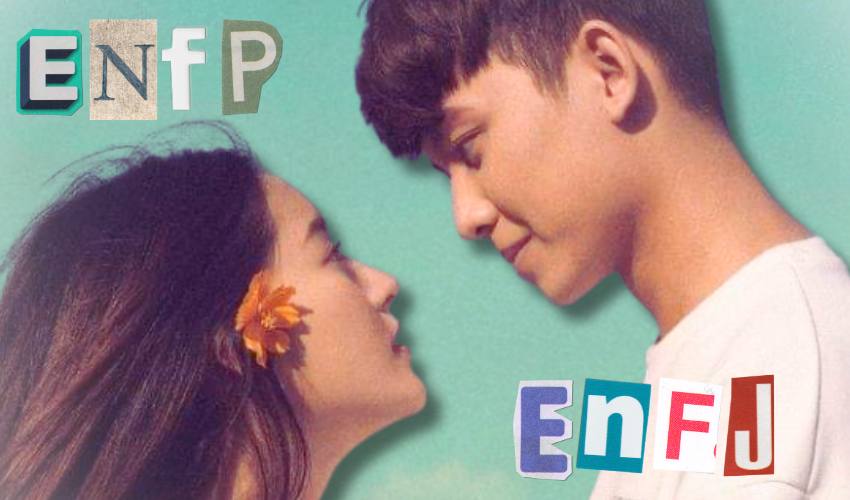Ti and Fi dom types like the INTP and INFP personality types are similar with regard to the personalized and independent way in which they think and make decisions. However, sometimes the lines distinguishing their “T” and “F” preferences can seem blurry. Despite what their type might suggest, some INFPs may enjoy and perform well in technical fields generally recommended for types with a “thinking” preference. Alternately, INTPs can also harbor an interest in matters specifically related to morality, authenticity and their sense of identity.
Introverted Feeling vs. Introverted Thinking.
INFPs lead with dominant Introverted Feeling and INTPs lead with dominant Introverted Thinking. Introverted Feeling is described as a judging preference that emphasizes personal values and what “feels” right to the individual. It emphasizes originality, authenticity, romance and humanity. It tends to incorporate moralistic ideals and personal feelings in discerning what is and isn’t important.
Introverted Thinking on the other hand, is a judging preference that prioritizes “rationality”. It is concerned with cultivating its own understanding and mastery of concepts and principles. It strives for independence, logical consistency, clarity, knowledgeability and sound reasoning. It is more interested in abstract logic than human sentiment. Ti and Fi are similar in that they both facilitate a sense of “internal order”, self-awareness and insight to its user. INTPs and INFPs are both concerned with managing and protecting their sense of agency and control over their own personal purviews.
The dominant and inferior functions in each type represent two parts of a whole. The dominant function is developed and displayed more consciously and conspicuously while the inferior tends to manifest as an afterthought or subconscious motivation. In the case of INTP, their dominant Ti represents a preoccupation with developing self-reliance and self-mastery while de-emphasizing the importance of social participation and human relationships. Ti-based activity takes priority while Fe-related endeavors often go neglected and viewed as a waste of time for the INTP.
Ti seeks to build an accurate and comprehensive mental model of the world for the sake of understanding it. INTP’s inferior Extraverted Feeling can foster a secondary goal of helping people using the knowledge and know-how they’ve developed with Ti. Although they resist sacrificing their sense of independence and autonomy at the altar of group solidarity or burdensome responsibility to others, INTPs may temporarily compromise their Ti priorities if it helps avoid conflict or improve interpersonal relations.
Thus, the feeling judgment that INTPs utilize is more communal and collective in nature than that of the INFP. INFP’s introverted feeling is less concerned with catering to others in the general sense and more invested in things and people on an intimate level. They are more narrowly focused on what is personally meaningful and important to them. Because they tend to be somewhat reserved about their feelings, INFPs can appear less emotional than they really are. Because their feeling judgment is introverted, they tend to internalize much of what they are feeling and keep it private. INFPs often use art and various forms of creativity as a cathartic means for expressing the fountain of emotions and sentiments circulating their internal world.
They prefer to relate to others on a more personal basis because they want to understand them as an individual. They dislike homogeneity, and anything that diminishes what makes people unique and special. INFPs tend to use their imagination to romanticize and fantasize about beautiful possibilities. They also use it to put themselves in the shoes of others in order to understand and empathize with them. Although they have strong feelings, their sensitivity may render them shy and even appear cold. Introverted Feeling is not as emotionally effusive as Extraverted Feeling and a lot of INFP’s feeling reactions and judgements will be concealed from others unless they feel comfortable enough to share them. .
Additionally, INFPs feel little compulsion to put on a fake attitude for the sake of appearances. They can be a silent rebel and a peaceful resistor against niceties and customs they view as trite and insincere. INTPs may be more willing than INFP to go along with things they don’t want to do, if it might spare them some drama (although they may protest if they don’t see any worthwhile reason to). INFPs may resist more frequently and strongly on the basis of moral conviction and asserting their individuality. INFPs feel less inclined to change or compromise who they are just to fit in with their environment. Consequently, INFPs can often feel out of place in many situations. They desire to be understood and accepted for who they are and not have their sense of identity and their personal standards overshadowed by the standards of others.
INTPs however, are slightly more sympathetic to social systems and the value of a cohesive community. Although INTPs are independent and individualistic in their style of thinking, they also feel an underlying broad sense of obligation to humanity. They enjoy being helpful to others and secretly aspire to leverage their Ti knowledge in ways that will improve people’s lives. INFP by contrast, is slightly more sympathetic about the importance of technical efficiency and the utility of organization and systems for managing their time and energy. INFPs enjoy being creative and taking action when inspiration strikes them. INFPs however, inherently also understand and eventually must embrace the value of taking a more structured approach for reaching their creative goals and aspirations.
related posts:
- INTP Shadow
- 7 Pitfalls That INTPs Should Avoid
- The INTP Personality: What it means to be the Logician MBTI Type
- INTP Strengths; 7 Advantages of Being INTP
- INTP Weaknesses: 7 Struggles of being INTP
- INFP Shadow: The Dark Side of INFP
- The INFP Personality; What It Means to be the Mediator MBTI Type
- 7 Major Weaknesses of the INFP Personality
- 6 Best Paying Careers for the INFP Personality
- 33 Strong Signs You’re a True INFP
- ISFJ and ISTJ in love: 5 Essential Dynamics of their Relationship - February 24, 2024
- ENTP and ENTJ in love: 6 Critical Dynamics of Their Relationship. - February 18, 2024
- ESTJ and ESFJ in love: 4 Key Aspects of their Relationship. - February 12, 2024





